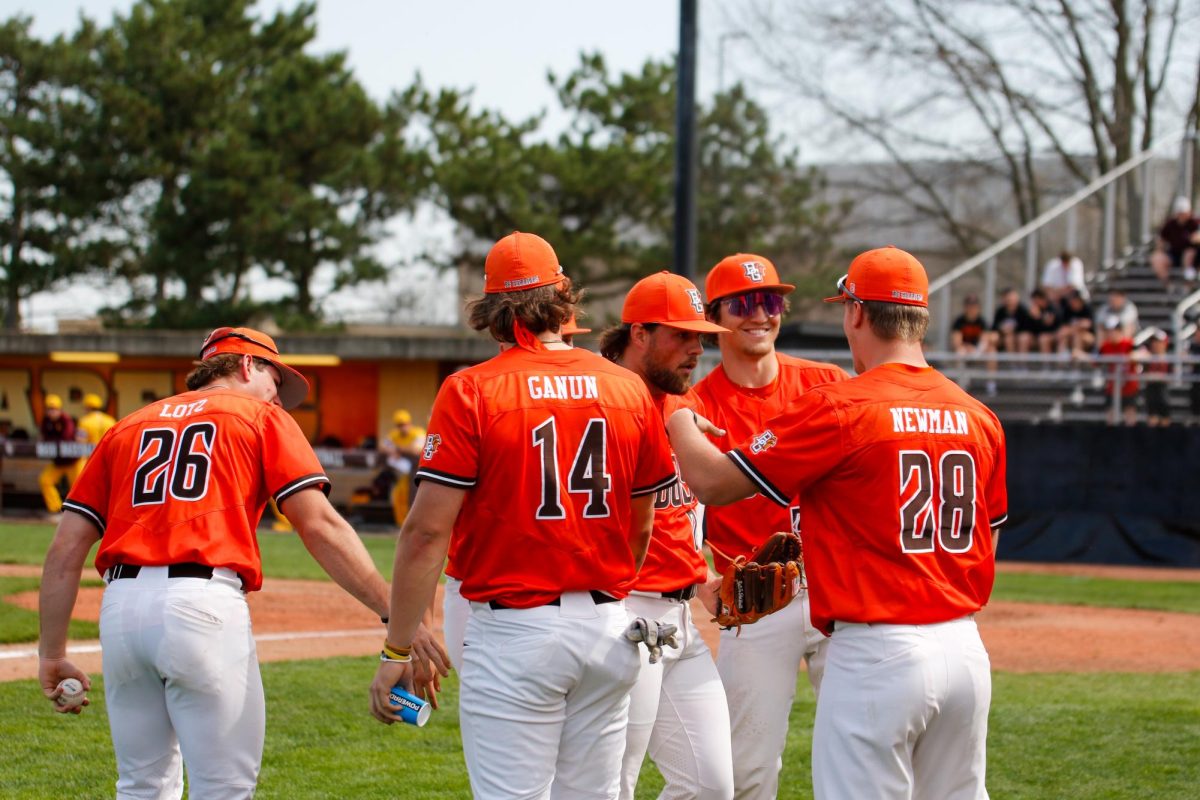A decade ago, Thomas Baldwin thought the ability of today’s media to share information with consumers through the Internet would reach epic proportions.
Yesterday, Baldwin came to the University to admit he was wrong.
During an afternoon talk in West Hall, the former Michigan State University telecommunications professor discussed the reasons why different forms of media and the Internet had not crossed over to the tremendous degree that experts once thought.
Baldwin said he and his colleagues were so certain of this media convergence, he published a book in the mid-1990s predicting its outcome. A move, Baldwin joked, he now regrets.
“Louisa invited me today to apologize for that book,” he told the 50 doctoral students and professors in the audience, referring to University Professor Louisa Ha, a former student of Baldwin’s.
After a quick laugh, the audience learned how the media industry failed to capitalize on the Internet, which would have given consumers greater access to information.
The telephone industry, Baldwin explained, was the first to fail in this opportunity because it could not afford the move from dial-up connections to the much faster digital subscriber lines.
Cable companies, on the other hand, could easily afford to create high-speed broadband connections because of the steady income they received from their near monopolies on cable television subscriptions. But since profits from broadband were less stable than cable subscriptions, investors began pulling their money out and companies could not develop the technology as quickly as they wanted.
Consumers, according to Baldwin, perpetuated the problem because they did not jump on the broadband bandwagon like the industry thought they would. Many decided to stick with dial-up because of the large price gap.
“It isn’t easy to sell broadband service, even though it is far superior,” Baldwin said.
The industry itself even fumbled its internet opportunities. When the global media company, Time Warner, merged with the Internet’s America Online, for example, the purpose was to use both media to cross-promote. This never happened, however, and the two entities remain separate.
Despite the industry’s lack of foresight, Baldwin had good reason to believe a great convergence would happen by now. In 1996, Congress passed the Telecommunication’s Act, which forced competition among telephone and cable companies and helped schools, hospitals and libraries connect to the Internet.
Unfortunately, the media industry began to complain that it could not afford the new policies and its lobbyists successfully overturned many of them.
Although his forecast did not happen like he and his colleagues thought, Baldwin concluded the speech with another, safer, prediction:
“Expect to see convergence over the years,” he said. “But maybe not so fast.”
Doctoral Student Angela Prater said she agrees that media convergence will not happen anytime soon, but is not as optimistic of its guarantee.
“I think it will take a lot longer. It won’t even be within the next 30 years,” she said, explaining that for convergence to adequately supply information to consumers there needs to be competition between media companies to make services affordable.
Only time will tell whether Baldwin was right this time, but doctoral student Eli Ewing said he trusts the former professor’s opinions.
“He’s the expert,” Ewing said.
Because of his interest in media, Ewing also said he would have come to the lecture even if he was not required. He believes the University did a great job in bringing Baldwin to campus.
“He’s a great speaker and knows what he’s talking about,” Ewing said.


















